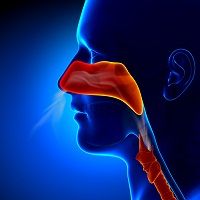Mucus Protein May Trigger Worsening Asthma
Targeting mucus proteins could lead to the development of novel asthma treatments, according to research from Northwestern University.

Sugars in a specific mucus protein can induce the apoptosis of white blood cells meant to attack parasites, which can combat asthma, according to research published in Journal of Allergy and Clinical Immunology.
Researchers from Northwestern University Feinberg School of Medicine examined lungs from normal and mucin-deficient mice, as well as mouse tracheal epithelial cells both in vitro and in vivo in order to isolate, biochemically identify, and biologically characterize naturally occurring endogenous glycan ligands for Saliac acid binding, immunoglobulin like lectin F (Siglec F). Siglec F is the mouse equivalent of the human protein Siglec 8. The white blood cells, called eosinophils, can worsen asthma and other diseases and eczema when too many of the cells get activated.
Previously, the research team identified Siglec 8 in humans as the sugar binding protein on the surface of human eosinophils. The programmed apoptosis in the eosinophils was triggered by Siglec 8. This process intrigued the researchers and led them to want to identify the naturally occurring sugars in the human body that can trigger Siglec 8.
“Asthmatics often have too many eosinophils in their airways,” Bruce Bochner, MD, Samuel M. Feinberg Professor in Medicine, Medicine-Allergy/Immunology, explained in a press release. “About 15 years ago, we embarked on research efforts to find new targets for treatment related to these cells.”
The mouse lung glycoproteins that bound to Siglec F, Muc5b and Muc 4, were sialic acid dependent, the researchers determined. They also found that the protein Muc5b activates Siglec F to trigger eosinophil apoptosis. The mice that were conditionally deficient in Muc5b demonstrated exaggerated eosinophilic inflammation in response to intratracheal installation of interleukin 13 (IL 13). The researchers believe airway mucins are an important pathway for reducing high levels of unnecessary eosinophils.
“We showed that mice missing Muc5b develop worse eosinophilic inflammation in their airways,” Bochner continued. “If you incubate this specific mucin with eosinophils, not only does it bind to Siglec F, but when it does, it kills the eosinophils.”
The researchers plan to further their research on human cells, especially since further research on the specific sugars used in the process could lead to the development of novel treatments for asthma.
“Maybe we can enhance the body’s own ability to get rid of these wayward eosinophils that shouldn’t be in the airway,” Bochner said.